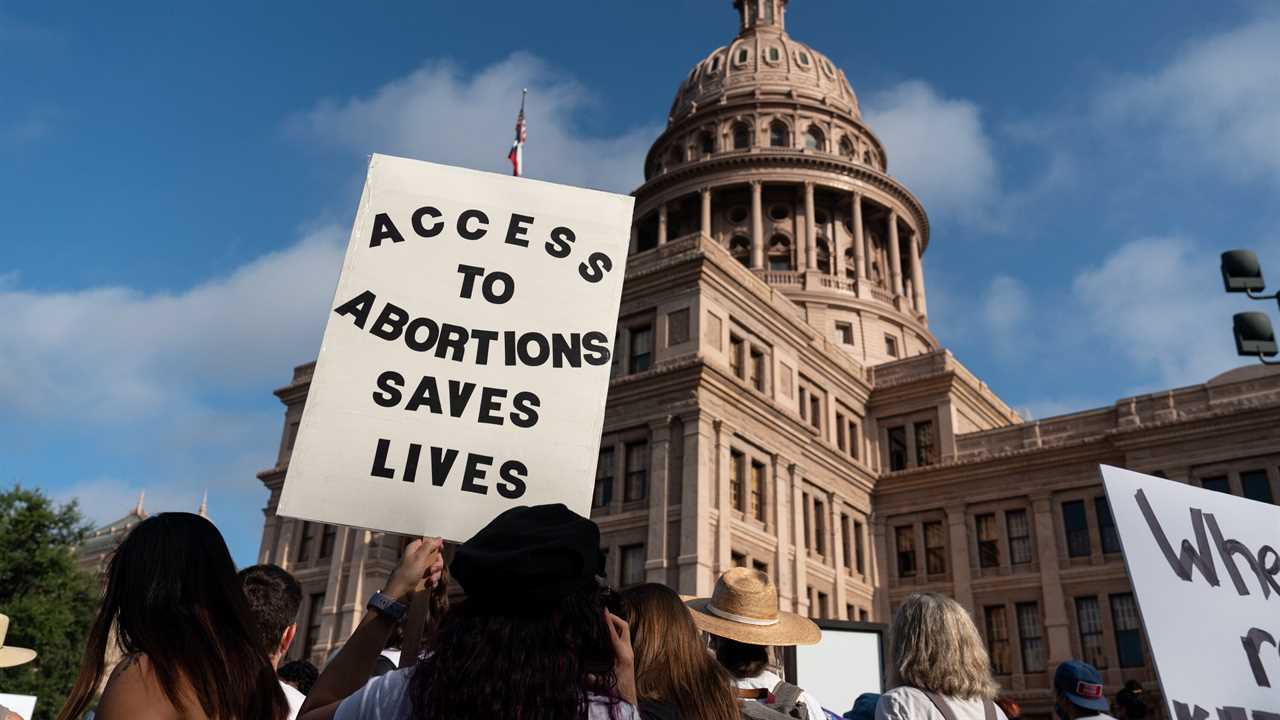
WASHINGTON — A federal judge on Wednesday granted the Justice Department’s request to halt enforcement of the recently passed Texas law that bans nearly all abortions in the state, ruling that the law should be put on hold as the legal battle over the statute makes its way through the federal courts.
In his 113-page ruling, Judge Robert L. Pitman, a Federal District Court judge in Austin, sided with the Biden administration, which had sued to halt a law that has changed the landscape of the abortion fight and further fueled the national debate over whether abortion will remain legal.
His decision to pause enforcement of the law could have an immediate effect on women in Texas who have scrambled to find health care providers in other parts of the country who will perform abortions.
“It is ordered that the State of Texas, including its officers, officials, agents, employees and any other persons or entities acting on its behalf, are preliminarily enjoined from enforcing Texas Health and Safety Code,” Judge Pitman wrote.
Judge Pitman said state court judges and state court clerks who had the power to enforce or administer the law were not to do so.
Last month, the Justice Department sued Texas over its abortion law, which bans the procedure once cardiac activity can be detected in an embryo, usually after about six weeks of pregnancy. Health care experts say that women may not know that they are pregnant during that time frame. And the law makes no exception for pregnancies that are the result of rape or incest.
It then filed an emergency motion requesting an order that would prevent Texas from enforcing Senate Bill 8 while its lawsuit moves through the courts.
At the center of the legal debate over the law is its enforcement mechanism, which essentially deputizes private citizens, rather than the state’s executive branch, to enforce the restrictions by suing anyone who performs an abortion or “aids and abets” a procedure. Plaintiffs are incentivized to file suit because they recover legal fees, as well as $10,000 if they win.
The Supreme Court declined last month to block the Texas law in a 5-to-4 decision, though it did not rule on whether the law and its unorthodox enforcement mechanism are constitutional and indicated that it could still take up those questions.
Opponents and supporters of the Texas law recognize that it is an enormous shift in the nation’s battle over abortion, which has long rested on whether the Supreme Court will overturn Roe v. Wade, the landmark 1973 decision that granted women the constitutional right to the procedure. The Supreme Court is also soon scheduled to hear another case, from Mississippi, on a state law restricting access to abortion after 15 weeks.
Understand the Texas Abortion Law
The most restrictive in the country. The Texas abortion law, known as Senate Bill 8, amounts to a nearly complete ban on abortion in the state. It prohibits most abortions after about six weeks of preganancy and makes no exceptions for pregnancies resulting from incest or rape.
The Texas law essentially allows a state to all but ban abortions before a legal test of that watershed case. If the law is not stopped by the courts, other Republican-led state legislatures could use it as a blueprint for their own restrictions.
There is no guarantee that the Justice Department’s civil suit against Texas will make its way to the Supreme Court. With both sides apt to appeal, the case will reach the Fifth Circuit Court of Appeals, one of the most conservative in the country. Should the appeals court rule that Senate Bill 8 is constitutional, the Supreme Court, which now has an expanded conservative majority, could decline to hear the case.
If the Supreme Court does hear the case, it will be asked to consider the effect that outsourcing enforcement to private citizens could have on the power of the courts and to rule on the constitutionality of Senate Bill 8.
Did you miss our previous article...
https://trendinginthenews.com/usa-politics/arizona-could-lose-relief-funds-for-undermining-school-mask-mandates






